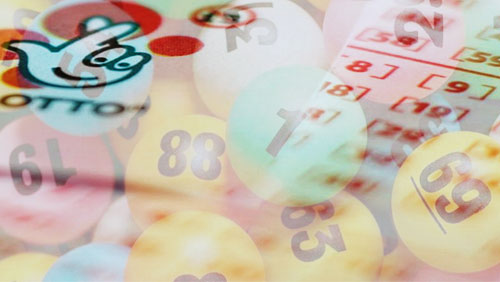The British sporting program may face budget cuts should the downward trend of UK’s lottery takings continue.
 The Daily Telegraph reported that the first quarter revenue of the British lottery dropped by more than 8.5 percent to £158.8 million (US$205.85 million) compared to the same period in 2015. The report attributed the revenue decrease to the dwindling number of people playing the National Lottery.
The Daily Telegraph reported that the first quarter revenue of the British lottery dropped by more than 8.5 percent to £158.8 million (US$205.85 million) compared to the same period in 2015. The report attributed the revenue decrease to the dwindling number of people playing the National Lottery.
Around two-thirds of funding for Britain’s Olympians and Paralympians comes from the Lottery and any sustained dip would lead to a reduction in the £350 million they currently get from UK Sport over a four-year period.
If the trend continues, UK Sports may have to cut the amount it gives to some sports unless the Government agrees to increase its own contribution to the organization’s budget. The slowing lottery revenue will also force UK Sport to allocate its resources on sports programs where UK has the best chance of success in 2020 and 2024.
The report projected that UK Sport’s budget for 2017-21 will lose £25 million (US$32.40 million) from its budget if lottery receipts do not pick up. The budget cut is said to be almost equivalent to the cost of the elite program in a sport such as athletics or several smaller sports combined.
During the recently concluded Olympics, the Team GB and Paralympics GB hauled 214 medals across a record 34 sports. Athletes and administrators spent the whole of Rio 2016 stressing the importance of Lottery funding to Britain’s success since it began in 1997, even thanking “Lottery players” personally.
They will be hoping that message got through when it comes to the remaining three-quarters of the financial year.
Lottery players, however, may find it difficult to show their support to the team, especially now that the cost of lottery tickets soared to £2.50 (US$3.24).
The Express reported that lottery firm Camelot is now under fire for not only increasing the price of EuroMillions tickets but also making a jackpot even more unlikely.
From 117 million to one, the lottery jackpot odds now increased to 140 million to one after Camelot introduced an extra number in the game. Punters now choose five numbers from 1 to 50, which is unchanged, but must also pick two lucky star numbers from 12, instead of 11 as before.
“The 45,000 plus retailers in our estate who sell draw-based games were all sent new play slips in plenty of time, along with a marketing pack outlining the key changes.”Camelot said, adding that they are not aware of any problems with play slips for the new EuroMillions game.